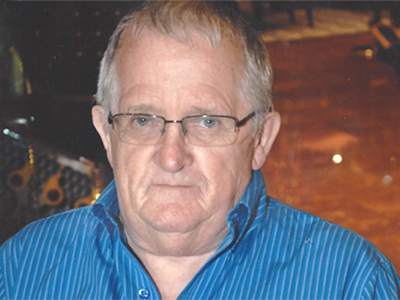
"I say yes to participate in research because it is my opportunity to give back so that people living with COPD can receive even better care now and into the future."
– Dan Smith, Surrey
Before his diagnosis, Dan Smith was an active walker and snowbird, often traveling with his wife overseas. Then, 10 years ago, he started having trouble breathing. “I ended up in the hospital, which is when I was told that I have severe COPD,” recalls the 77-year-old.
Chronic obstructive pulmonary disease (COPD) is a progressive lung condition that has a significant impact on the lives and longevity of millions of Canadians. Hospitalizations due to what are called ‘lung attacks’—when symptoms worsen—are a routine part of living with the condition, as are limitations on the ability to exercise and challenges going about daily tasks.
Knowing the importance of getting help to manage his condition, Smith began treatment right away. He met with his family doctor, as well as respiratory and rehabilitation specialists. However, he soon discovered that his patient records were not shared between care providers, and treatment guidelines were not necessarily tailored to his lifestyle.
“COPD patients all have different backgrounds and lifestyles, but the recommendations I received from health care providers were often more general in nature.”
In around 2017, Smith started pulmonary rehabilitation at the Jim Pattison Outpatient Care and Surgery Centre at Vancouver General Hospital. There he met Vancouver Coastal Health Research Institute researcher, Dr. Mohsen Sadatsafavi, who later asked Smith if he would like to be a patient partner for a study to support personalized COPD care using state-of-the-art technology.
Smith agreed and soon after started contributing to Sadatsafavi’s IMplementing Predictive Analytics towards efficient COPD Treatments (IMPACT) study. Backed by a $1.99M Canadian Institutes of Health Research grant, Sadatsafavi and his fellow researchers began developing a predictive medicine tool for precision COPD care that better tailors treatment plans to the individual characteristics and needs of each patient.
The software is scheduled to be connected with the harmonized electronic health records (EHR) system used in tertiary care centres across British Columbia. EHR is also a source of patient diagnoses and outcomes data that the research team is tapping into to refine their treatment recommendation algorithm.
Patient partners’ lived experiences can make a valuable contribution to research
The goal of the IMPACT study is to amass a diversity of perspectives from the people who will use and benefit from the COPD predictive medicine tool, as well as from experts in the area of COPD research and management. This is where the insights of patient partners like Smith, as well as researchers, care providers, knowledge users, administrators and implementation sciences and knowledge translation experts come in.

“Smith and other patient partners play a key role in the integrated knowledge translation component of the research,” notes Sadatsafavi. “Through IMPACT, we will collect insights from their personal experiences of navigating the health care system and living with COPD to guide how we shape the user-friendliness and effectiveness of the software.”
“We hope that this tool can inform better treatment recommendations, as well as support the communication of disease risk and outcomes to patients, empowering them to make informed decisions about their health.”

“My main focus when I contribute to research is to be part of something that can improve patients’ quality of life.”
“I need to be resourceful when it comes to managing my COPD in order to do the things that I enjoy,” says Smith, who continues to travel to distant locales. “But with the right care, I can now do almost everything I did before, just a bit slower.”
This is one patient's story of participating in a research study. Your experience may differ. Learn about clinical trials before participating.


